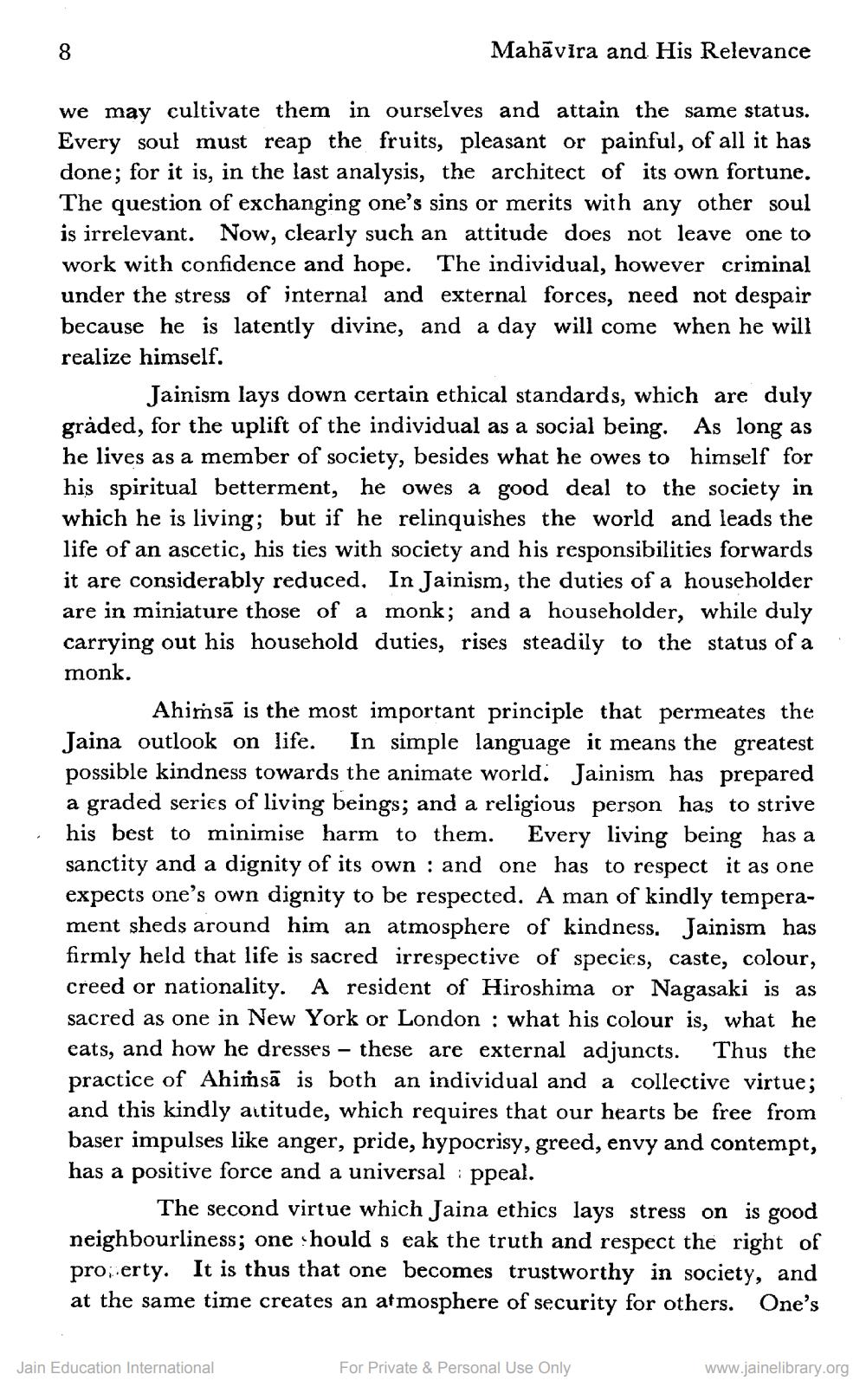________________
Mahāvira and His Relevance
we may cultivate them in ourselves and attain the same status. Every soul must reap the fruits, pleasant or painful, of all it has done; for it is, in the last analysis, the architect of its own fortune. The question of exchanging one's sins or merits with any other soul is irrelevant. Now, clearly such an attitude does not leave one to work with confidence and hope. The individual, however criminal under the stress of internal and external forces, need not despair because he is latently divine, and a day will come when he will realize himself.
Jainism lays down certain ethical standards, which are duly graded, for the uplift of the individual as a social being. As long as he lives as a member of society, besides what he owes to himself for his spiritual betterment, he owes a good deal to the society in which he is living; but if he relinquishes the world and leads the life of an ascetic, his ties with society and his responsibilities forwards it are considerably reduced. In Jainism, the duties of a householder are in miniature those of a monk; and a householder, while duly carrying out his household duties, rises steadily to the status of a monk.
Ahimsā is the most important principle that permeates the Jaina outlook on life. In simple language it means the greatest possible kindness towards the animate world. Jainism has prepared a graded series of living beings; and a religious person has to strive his best to minimise harm to them. Every living being has a sanctity and a dignity of its own : and one has to respect it as one expects one's own dignity to be respected. A man of kindly temperament sheds around him an atmosphere of kindness. Jainism has firmly held that life is sacred irrespective of species, caste, colour, creed or nationality. A resident of Hiroshima or Nagasaki is as sacred as one in New York or London : what his colour is, what he eats, and how he dresses – these are external adjuncts. Thus the practice of Ahiṁsā is both an individual and a collective virtue; and this kindly attitude, which requires that our hearts be free from baser impulses like anger, pride, hypocrisy, greed, envy and contempt, has a positive force and a universal : ppeal.
The second virtue which Jaina ethics lays stress on is good neighbourliness; one hould s eak the truth and respect the right of pro; erty. It is thus that one becomes trustworthy in society, and at the same time creates an atmosphere of security for others. One's
Jain Education International
For Private & Personal Use Only
www.jainelibrary.org




